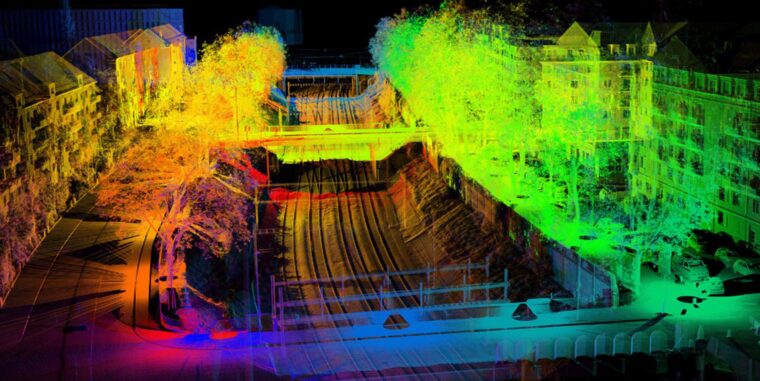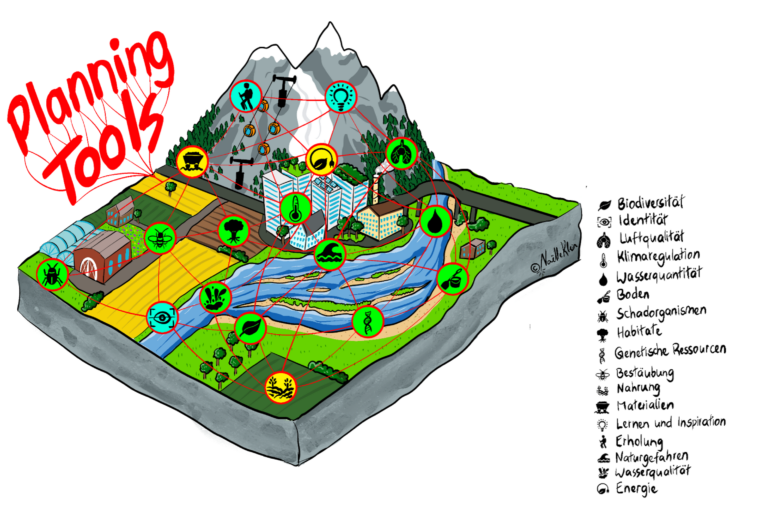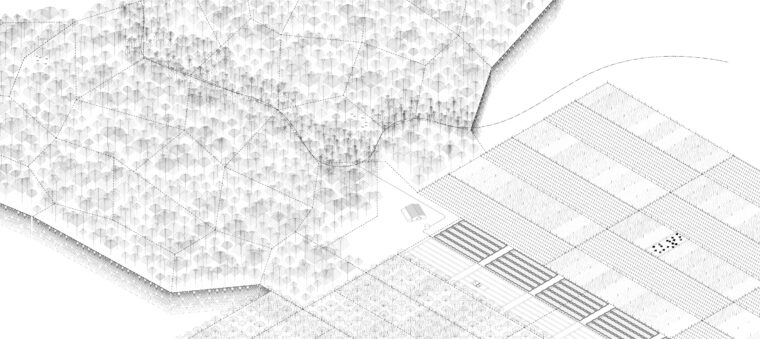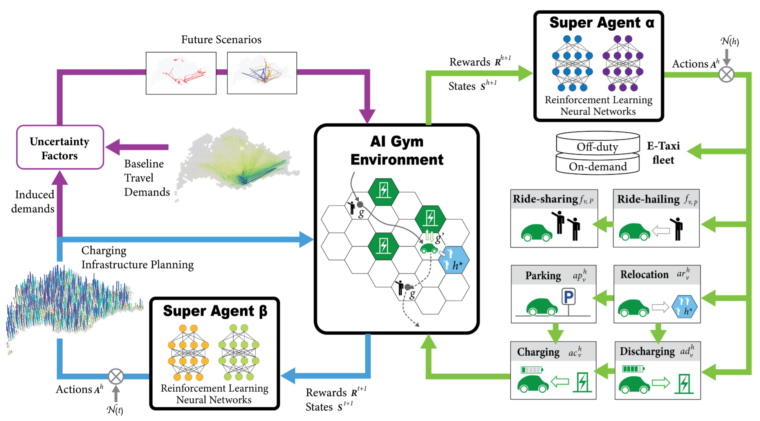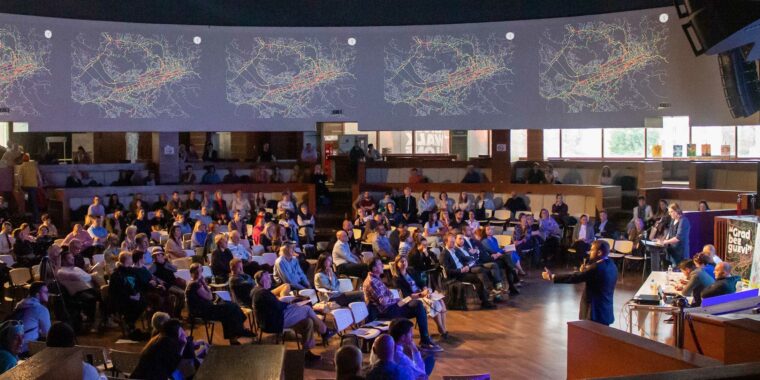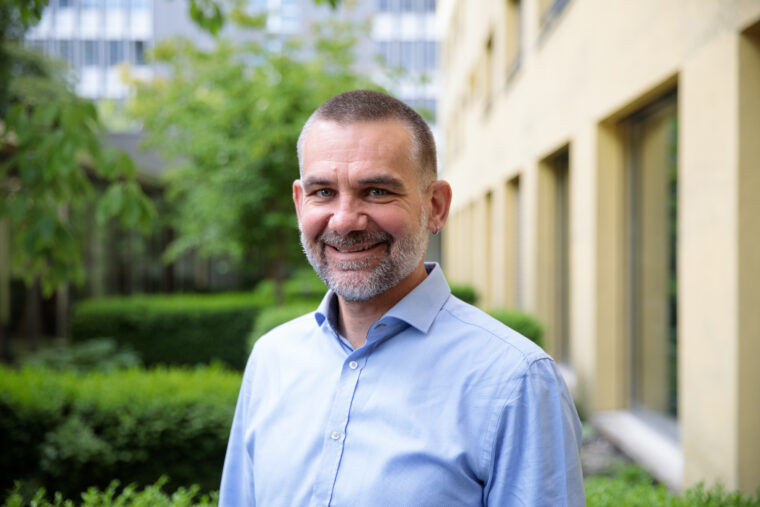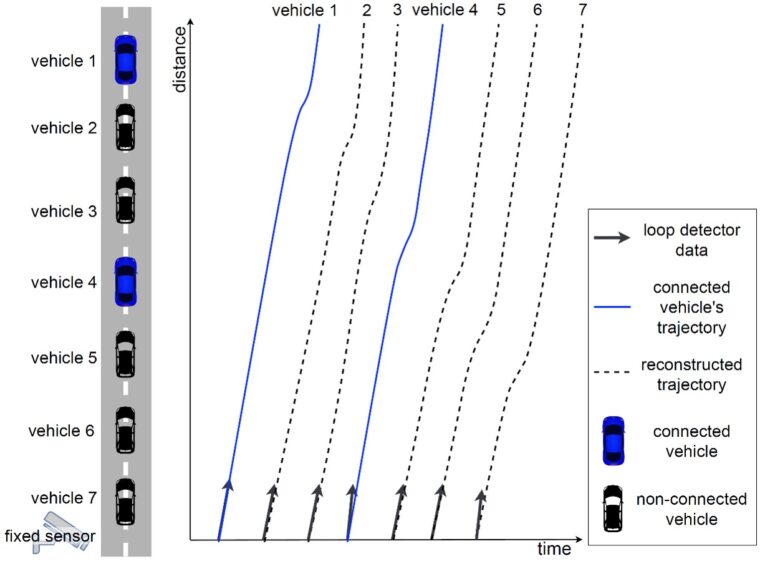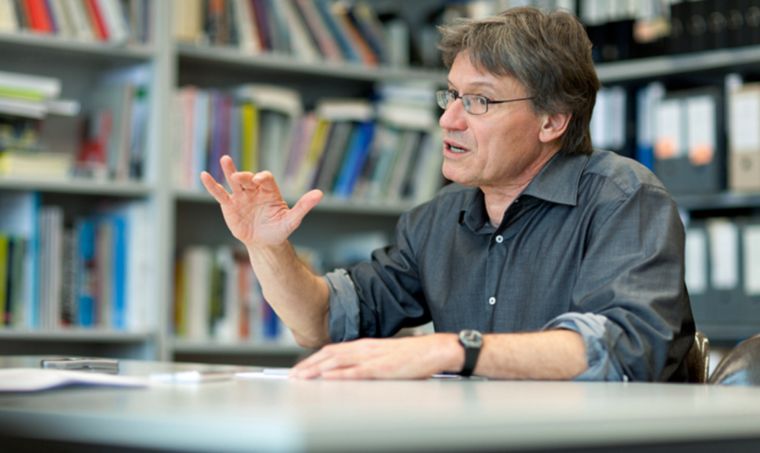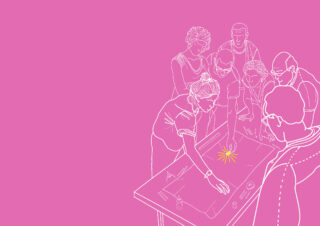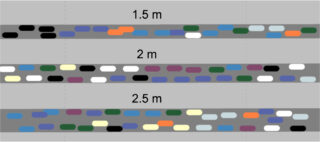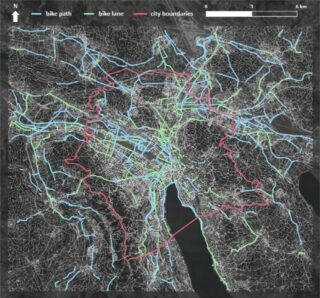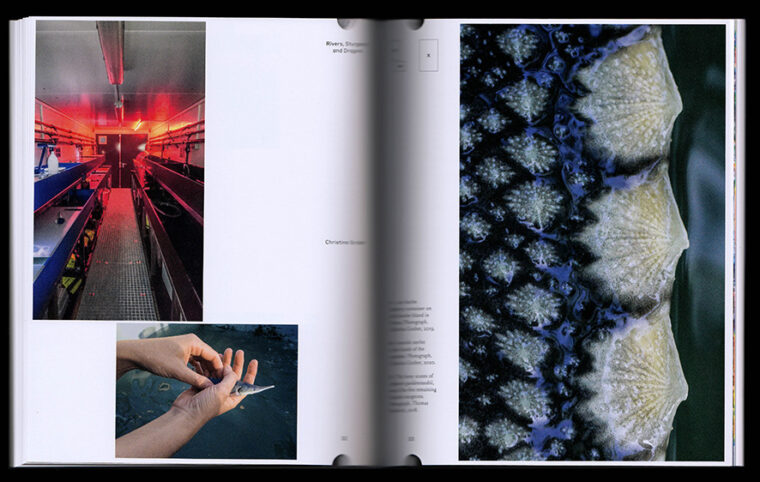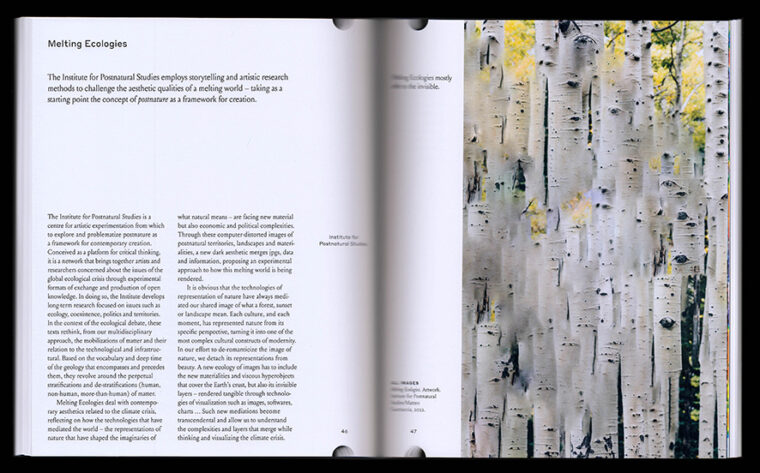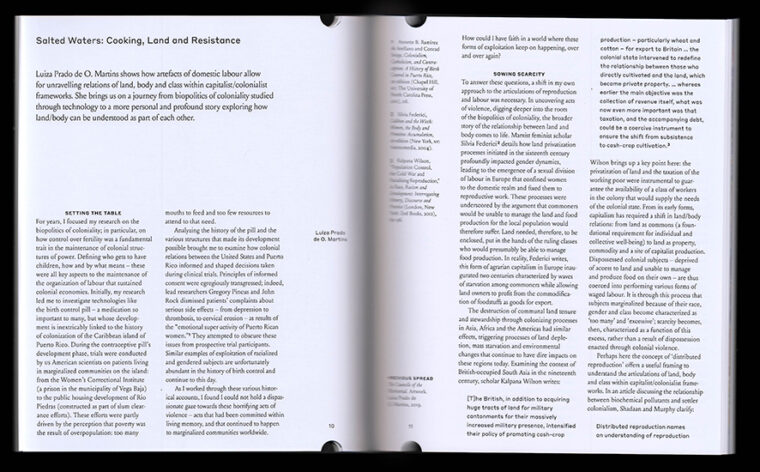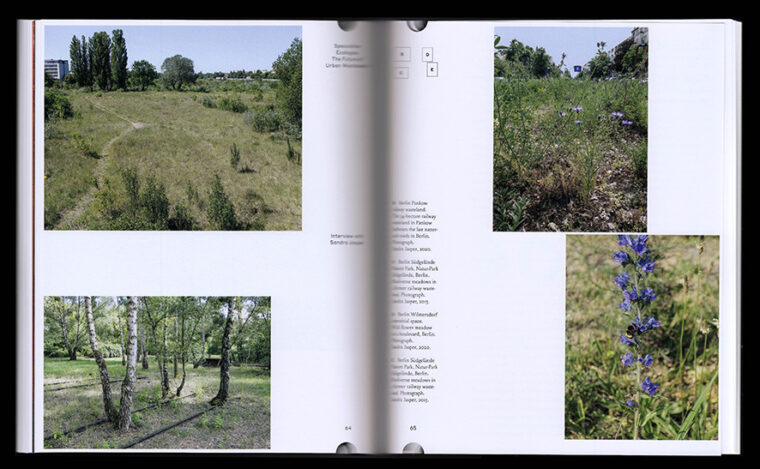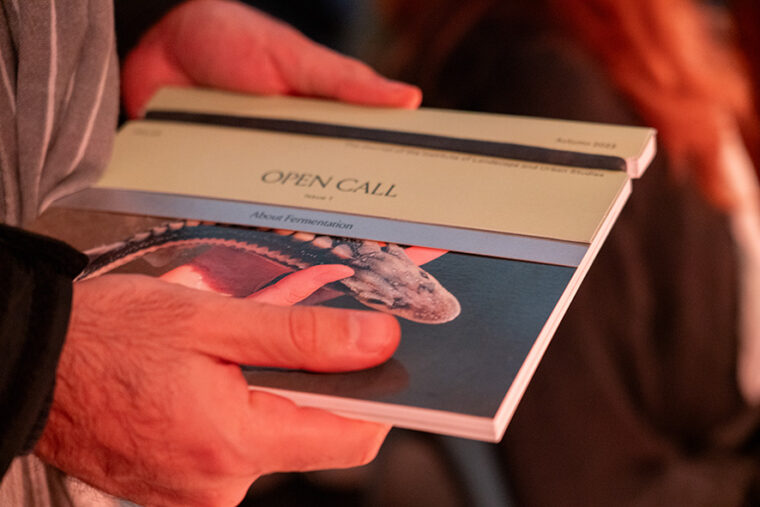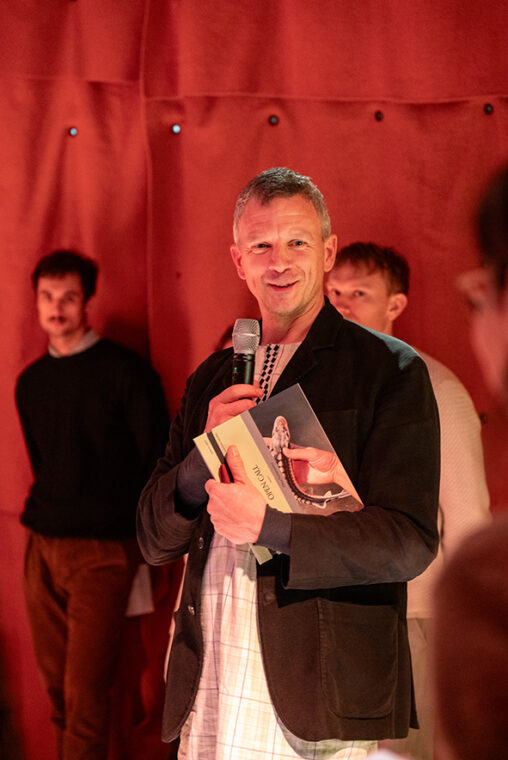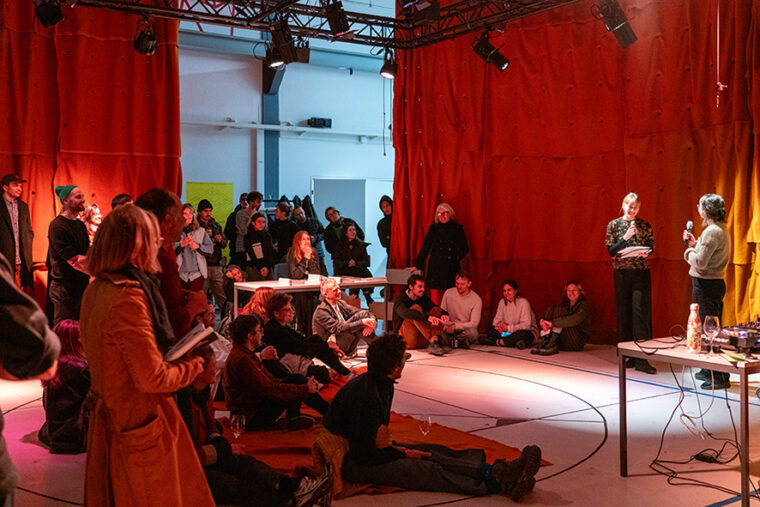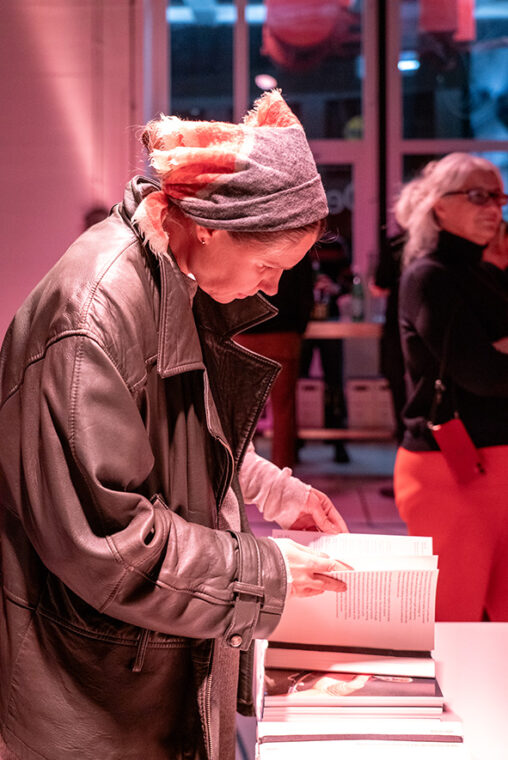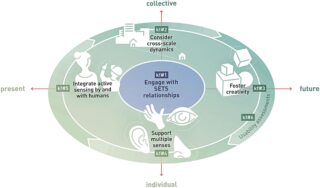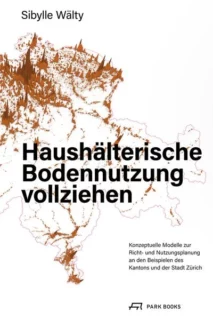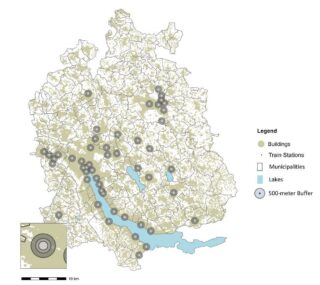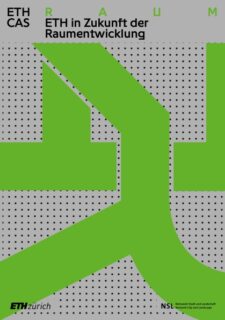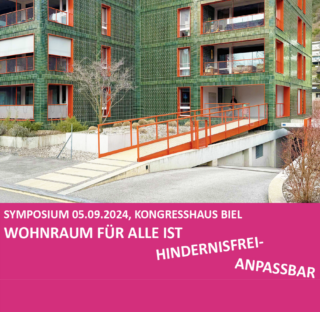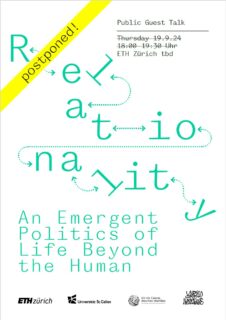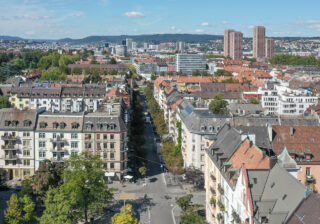Dear Readers,
What kinds of digital tools will shape planning today and in the future? How can these tools be implemented in sustainable yet user-friendly ways? The articles shared here dive into these and other thought-provoking questions. We also introduce Damian Jerjen, who is training new spatial planners, and say farewell to Christian Schmid, geographer, sociologist, and urban researcher e.g. at the ETH Studio Basel. Happy reading!
Philipp Urech, Matthias Vollmer, Fabian Gutscher | Large-scale Virtualization and Modeling Lab
At a time of global anthropogenic paroxysms, initiatives for urban transition are multiplying to ensure quality and resilience of life in cities. In particular, public open space holds immense potential for rapid adaptation to mitigate the severe risks to human health arising from global warming, pollution and pandemics. New methods capable of challenging and reimagining the public open space in cities can help to invent desirable futures.
Mehr
Noëlle Klein | Planung von Landschaft und Urbanen Systemen, Prof. Dr. Adrienne Grêt-Regamey
Der Aktionsplan Biodiversität soll den Zustand der Biodiversität in der Schweiz verbessern. Ein wichtiger Faktor ist der Einbezug von Ökosystemleistungen/Biodiversität in Raumentscheidungen. In einem Bundesmandat wurde eine Übersicht zu Planungstools erstellt, die dabei helfen können. Es wurden planungsinvolvierte Personen interviewt, um Hindernisse und Nachfrage nach Planungstools zu identifizieren.
Mehr
Zhao Ma | Chair of Being Alive, Prof. Teresa Gali-Izard
Landscape systems are intricate and challenging to illustrate effectively. The BeingAliveLanguage, a groundbreaking software integrated into Rhino/Grasshopper, revolutionizes the visualization of soil-centric information. Developed by ETH Zurich’s „Chair of Being Alive,“ this tool empowers designers and planners to create expressive, automated illustrations that support decision-making processes.
Mehr
Qiming Ye, Bryan T. Adey, Prateek Bansal | Infrastructure Management / Future Cities Laboratory Global
Although a transition to electric vehicles (EVs) has potential to greatly reduce transportation-related greenhouse gas emissions, it faces significant challenges, including range anxiety and limitations in battery capacity. Effective long-term planning for EV charging infrastructure can overcome these barriers and increase the chances of widespread adoption.
Mehr
Prof. Hubert Klumpner, Dr. Michael Walczak | Architektur und Städtebau (Artikel von Andres Herzog)
Die Professur von Professor Hubert Klumpner hat das erste KI-unterstütze 4D-Modell für Sarajevo entworfen. Es berücksichtigt auch die zeitliche Dimension in der Stadtplanung und war die Grundlage für öffentliche Anhörungen. «Um die Komplexität der Stadt abbilden zu können, brauchen wir neue Methoden, Prozesse und Technologien», sagt Klumpner. Mehr
Damian Jerjen | Raumentwicklung
Damian Jerjen ist neu – nebst seinem Engagement am EspaceSuisse – als Professor of Practice beim NSL, ETH Zürich, in der Grundausbildung für die Raumplaner:innen tätig. Im Interview spricht er über die besten Strategien gegen die Wohnraumknappheit, das Gesetz über eine sichere Stromversorgung, das im Juni zur Abstimmung kam und seine Schweizer Lieblingsorte.
Mehr
Yifan Zhang | Traffic Engineering, Dr. Anastasios Kouvelas
Understanding how vehicles move is crucial for safer, more coordinated, and smarter transportation systems. However, directly observing vehicle trajectories is impractical, posing a challenge to obtaining accurate trajectory data with limited sensing capabilities. We explore our innovative approach to vehicle trajectory reconstruction, reshaping the future of traffic management.
Mehr
Christian Schmid | Dozentur Soziologie
Der Soziologieprofessor Christian Schmid wird dieses Jahr emeritiert. Im Interview mit Andres Herzog blickt er zurück auf seine Zeit am ETH Studio Basel, das mit dem Buch «Die Schweiz: ein städtebauliches Porträt» für Diskussionen gesorgt hat und dessen Publikationen ab Mai als Open Access online frei zugänglich sind.
Mehr
4 – 6 September 2024 | ETH Zürich, Hönggerberg, HIL E3 and HIT.
Today’s design reflects a car-oriented consensus, which was formulated between the 1930’s and 1950’s and adopted around the world since then. The climate crisis challenges this orientation and asks for designs that emphasize micro-mobility. The three days between September 4th and 6th bring together experts, students, and the general public to think about how such a future could look. Talks, discussions, and interactive workshops offer the chance to learn together how to overcome the hurdles facing a climate-friendly environment.
Mehr
Nadine Antenen, Bruna Rohling, David Kostenwein, David Kaufmann | Spatial Development and Urban Policy (SPUR)
SPUR launches a comprehensive toolbox for flood risk mitigation in refugee settlements: www.humanitarian-risk.org. The toolbox includes a GIS tool to create flood risk maps and mitigation strategies, a compendium of flood risk mitigation measures and a participatory risk mapping methodology. We are thankful for the support of our collaborators: PLUS, UNHCR, SDC, Geneva Technical Hub
Dies ist eine Auswahl. Eine vollständige Liste finden Sie in der ETH Zürich Research Collection.
Yi-Chuan Ni, Michail A. Makridis, Anastasios Kouvelas
Cities allocate dedicated road space to bicycles in favor of active-mode road users. For urban environments with a mass bicycle volume, bicycle traffic congestion is likely to occur. Hence, a thorough understanding of bicycle traffic flow is necessary for the assessment of cycling infrastructure and the development of traffic management strategies considering cycling efficiency. Mehr
Adrien Meister, Zheng Liang, Matteo Felder, Kay W. Axhausen
This paper presents a comparison of different route choice models for cyclists. The data includes approx. 3,700 cycling trajectories. The network is derived based on the Open-Street-Map that contains street-level attribute information. Mehr
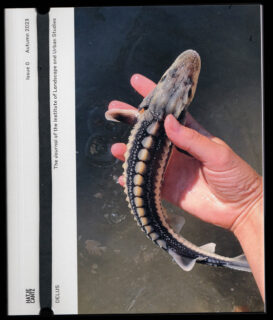
Die Pilotausgabe von DELUS wurde im Herbst 2023 im ONA DiD Lab lanciert. Sie bietet eine Reihe von Einblicken in Fragestellungen zu Landschaft und Stadt und stellt neue Methoden vor, um multiple Welten zu enthüllen und facettenreiche Geschichten zu erzählen. Die Beiträge reichen von der Enträtselung der Geschichte von Land-Körper-Beziehungen durch Rezepte mit Luiza Prado de O. Martins, der Verfolgung lebender Fossilien und ihrer mythischen Gegenstücke mit Christina Gruber, der Arbeit mit Gemeinschaften zur Untersuchung extraktiver Umgebungen mit Karin Reisinger, der Erforschung postnatürlicher Ästhetik mit dem Institute for Postnatural Studies bis hin zur Aufzeichnung von Ödland mit Sandra Jasper und der Entwicklung spekulativer Curricula, die sich mit übersehenen Formen von Wissen beschäftigen mit Federico Pérez Villoro. Bei all diesen Beiträgen geht es um die komplexen Beziehungen zwischen Menschen, Nichtmenschen und ihrer Umwelt über Zeit und Raum hinweg.
DELUS Aktuelles
DELUS-Ausgaben
Open access download bei Hatje Cantz
Für Updates folgen Sie bitte @delusjournal.
Kontakt
![]()
DELUS Issue 0 © ETH Zürich
![]()
DELUS Issue 0 © ETH Zürich
![]()
DELUS Issue 0 © ETH Zürich
![]()
DELUS Issue 0 © ETH Zürich
![]()
Einführungsveranstaltung © Charlotte Schaeben, ETH Zürich
![]()
Einführungsveranstaltung © Charlotte Schaeben, ETH Zürich
![]()
Einführungsveranstaltung © Charlotte Schaeben, ETH Zürich
![]()
Einführungsveranstaltung © Charlotte Schaeben, ETH Zürich
![]()
Einführungsveranstaltung © Charlotte Schaeben, ETH Zürich
Adrienne Grêt-Regamey, Nora Fagerholm
The unprecedented expansion of digital technologies has led to a rapid increase in the development and application of 3D digital environments for landscape and urban planning in the past two decades. Considering the significant challenges in guiding human societies towards sustainability, these technologies must not only assist decision-makers in adapting to changes but promote fast, transformative shifts in the relationship between human societies and nature. Mehr
Roger Diener, Jacques Herzog, Marcel Meili, Pierre de Meuron, Christian Schmid
The website «Open Access ETH Studio Basel» presents a selection of publications by the ETH Studio Basel as open access. ETH Studio Basel, Contemporary City Institute, was founded in 1999 as an institute of urban research at the ETH Zürich Department of Architecture by architects Roger Diener, Jacques Herzog, Marcel Meili, Pierre de Meuron and by urban sociologist and geographer Christian Schmid. Operating over two decades until 2018, the ETH Studio Basel created groundbreaking research on urbanisation and territory, tightly linked to the pedagogy of the design research studios.
Mehr
Sibylle Wälty
Mit Konzeptuellen Modellen zur Richt- und Nutzungsplanung an den Beispielen des Kantons und der Stadt Zürich. Eine umfassende Studie zum klimapositiven Umgang mit der knappen Ressource Boden in der Schweiz
Mehr
Elena Lutz, Michael Wicki, David Kaufmann
Densification is a key concept in contemporary urban planning. Yet, there are widespread concerns about densification causing displacement and gentrification. This paper examines densification around train stations – a prevalent form of transit-oriented development (TOD) in cities with established public transit systems – in the Canton of Zurich, Switzerland. Mehr
Dies ist eine Auswahl. Alle Artikel finden Sie auf der Seite Aktuell.
Bewerbung bis 15. Juli 2024 | Start: Herbst, Dauer: 6 Monate.
Das CAS «Zukunft der Raumentwicklung» vermittelt zeitgemässe Themen und Werkzeuge für den Umgang mit Unsicherheiten und Komplexität.
Mehr
5. September 2024, 09:00–17:00 | Symposium | Kongresshaus Biel, Vereinssaal, Zentralstrasse 60.
Mehr
Relationality: An Emergent Politics of Life Beyond the Human
Please note: this lecture has been postponed. New date TBA
Mehr
24. September 2024, 18:15–19:15 | Öffentliche Führung | Zürich, Kreis 3.
Mehr
Redaktionsteam
Silvia Converso, Institut für Landschaft und Urbane Studien (LUS), Landschaftsarchitektur
Michiel van Iersel, Institut für Landschaft und Urbane Studien (LUS), Städtebau
Viera Klasovitá, Institut für Verkehrsplanung und Transportsysteme (IVT)
Klearjos Papanicolaou, Institut für Landschaft und Urbane Studien (LUS), Städtebau
Noelle Paulson und Claudia Gebert, Koordinationsstelle NSL, Chefredaktion
Maarten Van Strien, Institut für Raum- und Landschaftsentwicklung (IRL)
